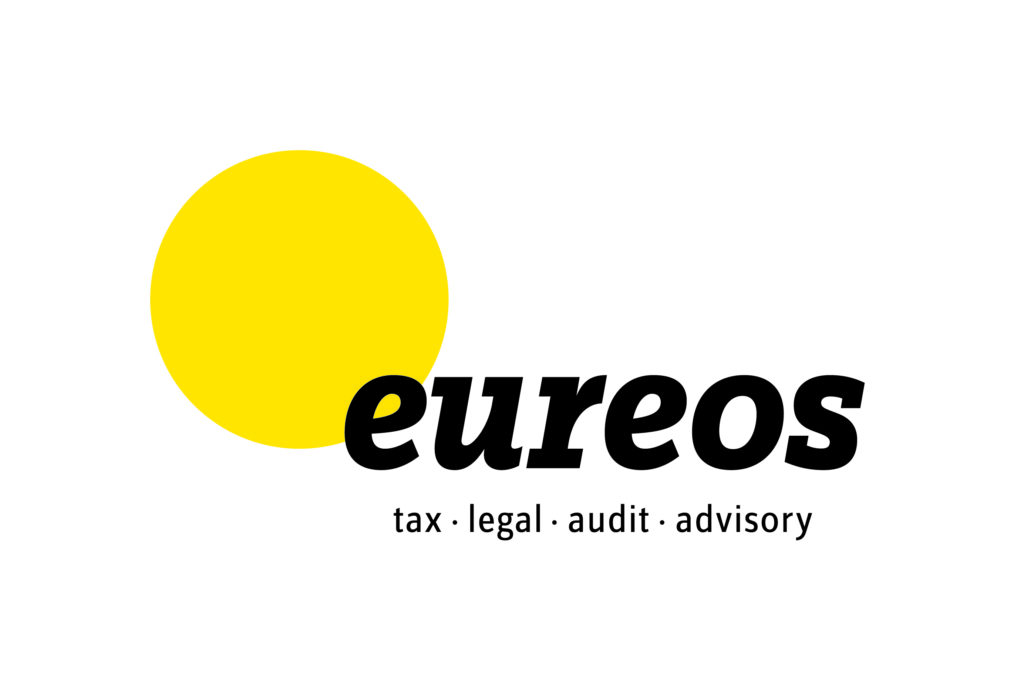

Since 2010, the Global Law Experts annual awards have been celebrating excellence, innovation and performance across the legal communities from around the world.
posted 5 years ago
On April 21, 2021, the Bundestag passed the bill to reform the real estate transfer tax. The aim is a significant tightening in the area of so-called share deals. The following changes are planned:
For example, current tax arrangements are to be made more difficult, according to which 94.9% of the shares in the assets of a (partnership) company are initially transferred and the remaining 5.1% are only transferred after a period of five years. If the retention period were extended, the remaining 5.1% could only be transferred after ten years.
The abuse provision of Sec. 6 para. 4 Real Estate Transfer Tax Act (Grunderwerbsteuergesetz, GrEStG) is to be extended. Insofar a change of partners in a real estate-owning partnership has not triggered any real estate transfer tax, Sec. 6 GrEStG may in future only be invoked after a 15-year retention period.
In addition, the Bundestag agreed to defuse the planned amendments at least partially:
Transfers of shares in corporations admitted to trading on an organized market operated in Germany or in another member state of the European Union (EU) or of the European Economic Area (EEA) are not taken into account if the transfer of the shares takes place as a result of transactions on this market.
All changes are scheduled to take effect on July 1, 2021.
The chamber of the German states, the so-called Bundesrat, still has to approve the proposal and is expected to discuss it on May 7, 2021.
It is to be welcomed that transfers of shares in a company made before the effective date (July 1, 2021) are exempt from these new regulations. This means that there will be no retroactive effect of the provisions. Overall, however, the tightening of the rules should be viewed critically, as the reform will make tax structuring much more difficult in the future.
On March 24, 2021, the German Federal Cabinet approved the draft law on the modernization of Corporate Income Tax Law (Gesetz zur Modernisierung des Körperschaftsteuerrechts, KöMoG). The Bundestag already discussed the bill in its first reading on April 22, 2021 and passed it on to the Finance Committee.
The following major changes are intended:
The law is scheduled to take effect on January 1, 2022.
In particular, the corporate income tax option represents a positive development for the competitiveness of many companies in the legal form of a limited partnership or general partnership.
It remains to be seen whether adjustments will be made in the course of the further legislative process.
Together with the KöMoG, the Bundestag also discussed the Anti-Tax Avoidance Directive Implementation Act (Anti-Steuervermeidungs-Richtlinien-Umsetzungsgesetz, ATADUmsG) in its first reading. This was also approved by the Federal Cabinet on March 24, 2021.
Significant changes that may accompany the ATAD Implementation Act are as follows:
The previously regulated interest-free and unlimited deferral of the tax claim incurred when moving to an EU/EEA state is to be completely abolished. Instead, only an interest-free deferral of the tax payment for a period of seven years is envisaged. This deferral rule is to apply both to the expatriation to a EU/EEA country and to the expatriation to a third country. In addition, further tightening is planned.
In particular, the previous concept of national control is abandoned and replaced by a control concept. This should always apply taking into account related parties or in the case of “interaction” if more than half of the shares, voting rights, capital or profit entitlement is directly or indirectly attributable.
The planned amendment to the law denies the deduction of operating expenses for hybrid arrangements under certain conditions for expenses for the use of or in connection with the transfer of capital assets, in so far as a possible double deduction of operating expenses in different countries results or the taxation of the corresponding income is not given.
In particular, the draft no longer provides for a hierarchy of methods and places a strong emphasis on functional and risk analyses as a basis for the comparability of business transactions. The definition of intangible assets will in future be based on the OECD definition. The draft also comments on the arm’s length analysis of financial transactions. In addition, financing centers will be classified as services in the future. Furthermore, the escape rule for transfers of functions has been removed.
It is also planned to amend Sec. 90 para. 3 of the German Fiscal Code (Abgabenordnung, AO), according to which a master file is to be prepared from a threshold value of EUR 50 million instead of EUR 100 million as previously. The master file must be submitted to the tax authorities together with the tax return.
The background to the ATAD implementation act is the ATAD Directive, which obliges all EU member states to adapt their tax regulations with regard to the above-mentioned aspects.
The bill therefore essentially represents a necessity in relation to the need to implement the ATAD Directive. Due to the tightening, taxpayers will have to face an increased audit effort in the future in order to be able to comply with the planned significant tightening.
Already on January 20, 2021, the German government passed the Withholding Tax Relief Modernization Act (Abzugsteuerentlastungsmodernisierungsgesetz, AbzStEntModG). Following amendments by the Finance Committee and their resolution, the second and third readings in the Bundestag are now scheduled for May 5, 2021.
The planned changes are comprehensive and affect in particular income tax law, conversion tax law and foreign tax law. Significant planned changes associated with the AbzStEntModG are as follows:
The background to the changes is a more resource-efficient design of the procedures and processes at the Federal Central Tax Office that is less susceptible to abuse and fraud.
The legislator is indicating further-reaching reform efforts, which will result in significant tightening in the area of withholding tax relief. Particularly with regard to the amendment to Sec. 50d para. 3 EStG, it remains to be seen whether this will meet the high requirements of EU law.
On April 13, 2021, the German government published a 22-point plan that deals decidedly with reducing bureaucracy in Germany and making things easier for citizens and companies. These 22 measures include:
The planned measures are to be welcomed in principle. Nevertheless, it must be emphasized that the majority of the measures have yet to be implemented, as this is currently only a key points paper from the coalition working group on reducing bureaucracy. It remains to be seen whether and when the intended reforms will be implemented.
On March 31, 2021, the German Cabinet approved the draft of the so-called Tax Haven Defense Act. It is now up to the Bundesrat to adopt a position on the law.
The aim of the draft is the national introduction of binding regulations to combat tax evasion, tax avoidance and tax competition. The effort is based on the conclusions of the Council of the EU on the “Black List” as well as the measures that were negotiated by the Group “Code of Conduct (Business Taxation)” and approved by the Council.
The following measures are planned:
and in so far as the remuneration can be taken into account as business expenses or income-related expenses of another taxpayer in the latter’s assessment for limited or unlimited income tax or corporation tax liability;
The draft has already been heavily criticized. The reason for this is that the EU only stipulates the implementation of one of the measures. Germany plans to implement all the measures, which will hit the tourism industry particularly hard. So-called escape regulations are not envisaged.
On March 17, 2021, the so-called Third Corona Tax Aid Act was passed. In addition to the continued reduced VAT rate for restaurant and catering services until December 31, 2022, this also provides in particular for an extended loss carryback and further relief options for companies and citizens.
Given the large number of legislative projects and initiatives and the sometimes impressive pace at which reforms are currently being pushed forward, it is difficult to keep up to date, especially for non-expert entrepreneurs.
We will help you to keep track of everything and will be happy to advise you in the various areas of German tax law.
If you have any further questions, please do not hesitate to contact us.
Author


No results available
posted 4 hours ago
posted 8 hours ago
posted 8 hours ago
posted 8 hours ago
posted 8 hours ago
posted 8 hours ago
No results available
Find the right Legal Expert for your business
Global Law Experts is dedicated to providing exceptional legal services to clients around the world. With a vast network of highly skilled and experienced lawyers, we are committed to delivering innovative and tailored solutions to meet the diverse needs of our clients in various jurisdictions.

Thinking of buying property in Brazil? Start with a full legal safety net.
✔️ Check title and ownership history
✔️ Verify no debts or disputes
✔️ Confirm zoning and permits.
#BrazilProperty #RealEstateInvesting #LegalDueDiligence #ForeignInvestment #PropertyLaw #GlobalRealEstate #InvestmentRisk #BrazilLaw

When your international business faces financial distress, quick action is key! 🔑 Negotiating with creditors, restructuring debt, and understanding insolvency laws can help regain stability. Global Law Experts is here to guide you through your options.
🌍Explore the details on our website.
🔗Link in bio
#GlobalLawExperts #CommercialLaw #BusinessLaw #LegalAdvice #BusinessGrowth #LegalTips #BusinessStrategy #LegalCompliance #Law #LegalKnowledge #LegalAwareness #Law101 #LegalEducation #IntellectualProperty

Thinking of buying property in Brazil? Don’t stop at the contract or key handover. Make sure the title is officially registered before calling it yours.
#BrazilRealEstate #PropertyLaw #GlobalInvestment #ForeignInvestors #LegalTips #DueDiligence #RealEstateRegistration #SecureInvestment

Getting a termination notice right now? Know your rights. Valid reason, fair process, proper notice they matter. Don’t let a bad dismissal walk away without accountability.
#EmploymentLaw #WorkerRights #Termination #LaborLaw #FairDismissal #WorkplaceJustice #LegalAwareness #GlobalWorkforce

Running a business is hard enough — lawsuits shouldn’t make it harder. 🚫 Protect your business with the right legal strategies and expert tools from Global Law Experts. Let’s secure your future together! 💼
🌍Explore the details on our website.
➡️www.globallawexperts.com
#GlobalLawExperts #CommercialLaw #BusinessLaw #LegalAdvice #BusinessGrowth #LegalTips #BusinessStrategy #LegalCompliance #Law #LegalKnowledge #LegalAwareness #Law101 #LegalEducation #IntellectualProperty #Infringed #Ecommerce #LegalBranding
Global Law Experts is dedicated to providing exceptional legal services to clients around the world. With a vast network of highly skilled and experienced lawyers, we are committed to delivering innovative and tailored solutions to meet the diverse needs of our clients in various jurisdictions.

Thinking of buying property in Brazil? Start with a full legal safety net.
✔️ Check title and ownership history
✔️ Verify no debts or disputes
✔️ Confirm zoning and permits.
#BrazilProperty #RealEstateInvesting #LegalDueDiligence #ForeignInvestment #PropertyLaw #GlobalRealEstate #InvestmentRisk #BrazilLaw

When your international business faces financial distress, quick action is key! 🔑 Negotiating with creditors, restructuring debt, and understanding insolvency laws can help regain stability. Global Law Experts is here to guide you through your options.
🌍Explore the details on our website.
🔗Link in bio
#GlobalLawExperts #CommercialLaw #BusinessLaw #LegalAdvice #BusinessGrowth #LegalTips #BusinessStrategy #LegalCompliance #Law #LegalKnowledge #LegalAwareness #Law101 #LegalEducation #IntellectualProperty

Thinking of buying property in Brazil? Don’t stop at the contract or key handover. Make sure the title is officially registered before calling it yours.
#BrazilRealEstate #PropertyLaw #GlobalInvestment #ForeignInvestors #LegalTips #DueDiligence #RealEstateRegistration #SecureInvestment

Getting a termination notice right now? Know your rights. Valid reason, fair process, proper notice they matter. Don’t let a bad dismissal walk away without accountability.
#EmploymentLaw #WorkerRights #Termination #LaborLaw #FairDismissal #WorkplaceJustice #LegalAwareness #GlobalWorkforce

Running a business is hard enough — lawsuits shouldn’t make it harder. 🚫 Protect your business with the right legal strategies and expert tools from Global Law Experts. Let’s secure your future together! 💼
🌍Explore the details on our website.
➡️www.globallawexperts.com
#GlobalLawExperts #CommercialLaw #BusinessLaw #LegalAdvice #BusinessGrowth #LegalTips #BusinessStrategy #LegalCompliance #Law #LegalKnowledge #LegalAwareness #Law101 #LegalEducation #IntellectualProperty #Infringed #Ecommerce #LegalBranding
Send welcome message